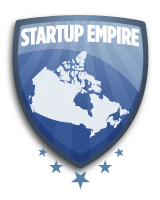
Well, it’s over. StartupEmpire was, by most measures, a success. Almost 300 people in total come by to either the conference and/or the after party and we didn’t lose our shirts in the process.
I would be lying if I told you that putting StartupEmpire together was easy or even fun (despite the title of this post!). It wasn’t. We struggled with the format, got it wrong, and then had to re-iterate the whole thing in the final stretch. Taking a conference from 2 days to 1 day, and changing venue basically doubles the work.
We stubbornly pushed forward with the conference for a few reasons, but the biggest one was because of what we saw by the time everyone had piled in to those just-a-little-too-small chairs on the dance floor of This Is London at 9am. The crowd everything I had hoped it would be, a mishmash of students, entrepreneurs, angels and VCs.
A few people pointed out to me how this wasn’t the typical conference crowd, most people were taking notes like they were going to be tested on it, and the buzz during the breaks was unmistakable.
There are some people I want to thank, personally, for what they did to help make StartupEmpire happen:
Michele Perras put up with David and I and kept the rudder of the ship on course. Michele can run the entire operational side of a businessnes, but she is completely unique in that her abilities as an organizer/operator aren’t even her greatest strength: She is one of the most creative and biggest thinkers I know. When I dove in to minutia, she pulled me out.
 Jonas, who has written this blog with me for the last year and a half has been incredibly busy with his own startup these days. When I called him and said “I need your help”, I wasn’t sure he would even have time to step up for the all-hands-on-deck call, but he did. He swooped in and took over contract negotiations, managed a few pages of TODOs and logistics and was there with me unfolding chairs and carrying in stage boards on the night before the conference.
Jonas, who has written this blog with me for the last year and a half has been incredibly busy with his own startup these days. When I called him and said “I need your help”, I wasn’t sure he would even have time to step up for the all-hands-on-deck call, but he did. He swooped in and took over contract negotiations, managed a few pages of TODOs and logistics and was there with me unfolding chairs and carrying in stage boards on the night before the conference.
David Crow, who couldn’t print name badges if his life depended on it, but who still takes the job every time. I’m not sure how Dave and I get ourselves in to these messes, but they usually work out. Dave is one of those guys who does what he says he will every time and comes back with more ideas.
Rick Segal who stepped up with the idea for StartupSchool and said “let me run with it”. Rick took some of the most dry content of the day (legal, term sheets, etc) and made them a conversation.
Howard Lindzon who said “do it” back in August when I mentioned the idea of a conference and put his name up to help lead the way.
Robert Montgomery who helped me navigate a few mishaps and provided support when we needed it.
The Student Volunteers. Wow, this was one of the most hard working and impressive group of folks we could have hoped for. They took the iniative as soon as they got there and filled in gaps we had left. From creating an ad-hoc system of responsibilities to a make-shift coat check, they handled it all and left me in awe. I’d hire these folks in a heartbeat. A few of them are involved with the upcoming Impact Conference, which looks fantastic.
 The Veterans, those in the crowd who have raised money, knew how to pitch and frankly just didn’t need some of the early-stage content that was on stage. It made me so proud to see some of the tech community’s most seasoned entrepreneurs who get it and were there not for who or what was on stage, but so that they could meet and help the other folks in the audience who are just getting started.
The Veterans, those in the crowd who have raised money, knew how to pitch and frankly just didn’t need some of the early-stage content that was on stage. It made me so proud to see some of the tech community’s most seasoned entrepreneurs who get it and were there not for who or what was on stage, but so that they could meet and help the other folks in the audience who are just getting started.
Our sponsors, who got on board for this event before they knew what would happen with it, and who stuck around when things were changing daily. These companies and organizations are some of the few who truly believe in the tech community and who have proven they are ready to stick by it. When everyone is talking recession and doom and gloom, it is easy to run away and keep your money. Microsoft, HighRoad, Gowlings, PriceWaterhouseCoopers, JLA, OCE all have my gratitude. I dreaded making some of those phone calls two weeks before the event, but they all said the same thing: The community needs this, we want to see it happen.
Finally, all of you who bought tickets and believed we’d pull it off. I hope you weren’t dissapointed. I met some incredible people through the day and can’t wait to find out more about what you have up your sleeve.
Most of all, I am thankful to my wife Laurel, who did nothing but support me as I was going between making this conference happen and bringing Firestoker in to one of its most exciting periods yet. At times it was 2+ full time jobs.
Startups in Canada are not dead, investment in Canada is not dead, smart ideas and innovative companies are not gone. We are just getting started, that is something I believe more than anything right now.







 We can’t wait to get started with the
We can’t wait to get started with the